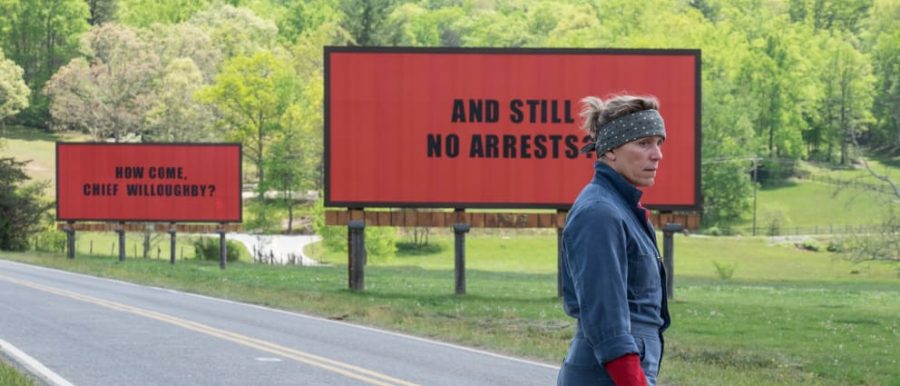REVIEW: ‘Three Billboards Outside Ebbing, Missouri’ confronts necessary social issues
In “Three Billboards Outside Ebbing, Missouri”, several societal issues are brought up and strike necessary conversations.
February 21, 2018
“Three Billboards Outside Ebbing, Missouri” is a beautiful testament to quality over quantity. In perhaps an attempt at longevity, the film touches many burning topics in society: sexual assault, police brutality, freedom of speech and feminism. Each is a relevant and necessary conversation, but also incredibly distinct. Director Martin McDonagh sets up an intriguing angle toward each, but leaves the eye wondering where to focus. If his attempt was to awake the audience by perturbing them, he was wildly successful.
Seven months after the rape and murder of Angela Hayes, her mother Mildred (Frances Mcdormand) is at a loss for answers. The police department of Ebbing, Missouri has repeatedly denied her the justice she deserves. To gain vengeance, Mildred takes advantage of three unoccupied billboards on the outskirts of town. In a series of short, but poignant statement and questions, she calls out the police department, specifically the police Sheriff Bill Willoughby (Woody Harrelson). Mildred’s resilience wreaks havoc in the unsuspecting town of Ebbing. Racist officer Jason Dixon (Sam Rockwell) finds himself at the forefront of the police department’s fight against Mildred.
“Three Billboards Outside Ebbing, Missouri” already has its share of accolades. Rockwell and Mcdormand both collected Screen Actors Guild and Golden Globe awards in their respective categories. It is expected to continue its streak at the Academy Awards.









